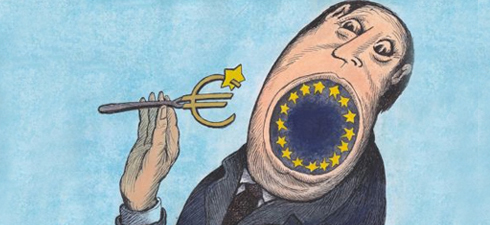Whenever a state that wants to join the North Atlantic Treaty Organisation (NATO) or the European Union (EU) succeeds in overcoming one of the obstacles on the administrative assault course imposed by those organisations, I am immediately reminded of the remark made by Zoran Dogramadziev, one of only a handful of Macedonian journalists to have enjoyed an international career.
In an article published in this newspaper several years ago, he pointed out that with every step towards accession, candidates to join the European club are required to eat humble pie and the best policy is to swallow it as quickly as possible so as to avoid a second helping.
Slovenia was forced to hand back property belonging to the Italian minority, Croatia had to surrender some of its territorial waters in the Gulf of Piran, while Romania lowered its guard to accept a large number of concessions on the Hungarian minority: something it never would have done were it not for pressure from Brussels.
Tour d’Europe
Bulgaria was also forced to eat humble pie with the partial closure of the Kozlodouï nuclear power station, which is the country’s most profitable installation. As for Macedonia, our serving of humble pie [a compromise with Greece in the dispute over the use of the name Macedonia] has had time to accumulate over the last 20 years and will be extra difficult to swallow.
Serbia and Kosovo, two countries vying for position at the back of the pack in the Tour d’Europe, also had a taste of this experience when they signed an agreement on the designation of the former Serbian province which unilaterally proclaimed its independence [in 2008]. Under the terms of the agreement, Serbia will accept that Kosovar officials represent their country at regional conferences. But in the text, Kosovo is followed by an asterisk indicating the presence of a footnote which explains that this does not amount to a recognition of the province’s independence.
In endorsing a historic agreement which divides them into two clearly separate entitites, Serbia and Kosovo have overcome a first obstacle. And while the signatories seek to convince their fellow citizens that the agreement amounts to a small victory for their country, nationalists in both camps have announced that it amounts to a deplorable act of betrayal and capitulation to European authorities.
Open dialogue with Serbia
Both the international community and neighbouring countries have been quick to congratulate Serbia and Kosovo and to encourage them to continue their efforts. Even Hillary Clinton from her vantage point in Washington has remarked that Kosovo is now much closer to the EU. But the major advance has been the one made by Belgrade, and Germany and France have been quick to announce that Serbia deserves to become an official EU candidate.
This is now the case and the country can expect to obtain a start date for negotiations that may take place at the same time as those for Montenegro.
Regardless of how we interpret this agreement, it is clear that settling the question of the province of Kosovo which was lost years ago has enabled Serbian leaders to offload a major millstone. Now they will have to prepare the people to accept the reality: the Serbian "Holy Land" [Kosovo] is now an independent state.
For their part, the Kosovars are now well aware that the road between the proclamation of independence and international recognition is a long one that will have to pass through several phases of open dialogue with Serbia. When Serbia finally becomes a fully fledged member of NATO and the EU, the European integration of Kosovo will be subject to agreement from Belgrade.
Was this article useful? If so we are delighted!
It is freely available because we believe that the right to free and independent information is essential for democracy. But this right is not guaranteed forever, and independence comes at a cost. We need your support in order to continue publishing independent, multilingual news for all Europeans.
Discover our subscription offers and their exclusive benefits and become a member of our community now!












